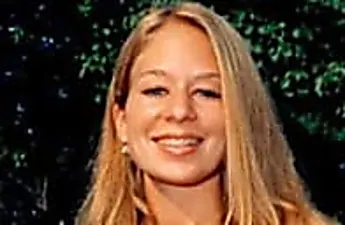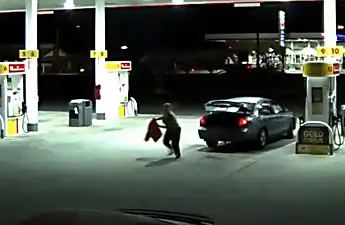
SARAJEVO -
The international court has finished its work and Bosnian Serb wartime military chief Ratko Mladic will end his days in prison, but Bosnia will struggle to turn the page on its ethnic war.
"A judicial process in itself can never achieve reconciliation," the UN war crimes court's chief prosecutor Serge Brammertz told us at France24 ahead of Mladic's guilty verdict, which was delivered Wednesday.
"Reconciliation has to come from within society," he added.
But the process of reconciliation has stalled in the Balkans, the Council of Europe rights commissioner Nils Muiznieks wrote.
He cited "mounting ethnic divisions and polarisation in the region" as well as a "denial of genocide (and) glorification of war criminals."
Even now, Bosnian Serb politicians "remain prisoners of the idea that it is a political tribunal, a historic injustice towards Serbs," independent political analyst Tanja Topic said.
For most Bosnian Serbs, the Mladic verdict is no turning point, as it will not trigger a change in attitude towards war crimes committed by Serb forces, she added.
The International Criminal Tribunal for the former Yugoslavia (ICTY) in The Hague on Wednesday sentenced Mladic to life in prison for genocide during Bosnia's 1992-1995 war.
Just a few hours before the verdict, a few kilometres (miles) from the Srebrenica massacre memorial, several posters were seen showing Mladic in uniform with the caption: "You are our hero."
Bosnian Serb political leader Milorad Dodik called the convicted war criminal a "legend for the Serbian people."
More than two decades after the end of the war, that view continues to be held by most Bosnian Serbs.
While Bosnian Serbs are Orthodox Christians, and represent a third of the small Balkan country's 3.5 million inhabitants, Muslims make up a little over a half of the population and Catholic Croats 15 percent.
- 'Three truths' -
Those who refuse to define themselves along ethnic-religious lines -- called the "others" ("ostali") -- represent only three percent of the population.
Symbolising their marginalisation, the constitution says that they can not aspire to become members of the country's tripartite presidency.
The Dayton peace agreement silenced the guns in November 1995.
But according to Predrag Kojovic, head of small multiethnic party Nasa Stranka (Our Party), it also "gave the nationalists virtually unlimited power over their ethnic territories."
It helped them "achieve the goals they had set out to attain during the war through other, political means," he said.
A quarter of a century after the start of a war that left 100,000 dead and 2.2 million displaced, representatives of all ethnic communities still evoke the concept of "three narratives" or "three truths" about what happened.
School segregation, implemented under the pretext of protecting minority rights, helps perpetuate this conflict of historical memory.
Meanwhile the divide between ethnic communities has continued to deepen since the 1992-1995 war.
The northern city of Banja Luka, for instance, was once multi-ethnic -- 49 percent of its inhabitants were Serbs, while Muslims and Croats represented 19 and 15 percent respectively.
Banja Luka is now 90 percent ethnic Serb.
A symbol of multiculturalism under the communist Yugoslav era, the capital Sarajevo followed the same trend and is now home to a large Muslim majority.
- High school visits -
The Serbian mayor of the town of Srebrenica, scene in 1995 of Europe's worst massacre since World War II, says he believes in a society where once rival communities can live together in peace.
In his office, Mladen Grujicic shows off child's drawing that he keeps next to his desk, of a Serb and a Bosnian Muslim reading together -- one the Bible, the other the Koran.
But still "it is obvious that Bosnia-Herzegovina does not work" as a state, he said.
Nonetheless Zijad Bacic, 40, wants to believe in it.
Bacic survived a massacre in Zecovi, a village in northwestern Bosnia, which saw 17 members of his family executed by Mladic's forces.
Along with other war victims, Serb and Croat, he regularly visits high schools to tell his story.
"People who know that we have no other choice but to live together started the process of reconciliation at the end of the war," Bacic said.
He remembers that although it was Serb forces who murdered his family, other Serbs risked their lives by hiding him and helping him to escape.




![[Gallery] This Warship Is An Enemies Worst Nightmare [Gallery] This Warship Is An Enemies Worst Nightmare](http://images.outbrain.com/transform/v2/eyJpdSI6IjE4NzU2ZTE0Y2ZjOWFkMDJjMGQwZGQ5ZDk2NWQ2YTRiYjRjOTdkZWMzYTUwNzEzNTZjNTQ1ZjFlZGVjMzBjMjgiLCJ3IjoyMzAsImgiOjE1MCwiZCI6MS41LCJjcyI6MCwiZiI6MH0.webp)
No comments:
Post a Comment